-
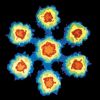 +19 +1
+19 +1Fire up the atom forge
Rethink electron microscopy to build quantum materials from scratch, urge Sergei V. Kalinin, Albina Borisevich and Stephen Jesse.
-
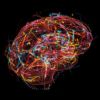 +22 +1
+22 +1A New Spin on the Quantum Brain
A new theory explains how fragile quantum states may be able to exist for hours or even days in our warm, wet brain. Experiments should soon test the idea. By Jennifer Ouellette.
-
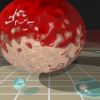 +2 +1
+2 +1Scientists discover light could exist in a previously unknown form
New research suggests that it is possible to create a new form of light by binding light to a single electron, combining the properties of both.
-
 +25 +1
+25 +1The hidden neutrino
The explanation for some strange experimental results could lie in undiscovered particles called sterile neutrinos. By Laura Dattaro.
-
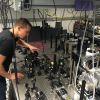 +19 +1
+19 +1Quantum entanglement achieved at room temperature in semiconductor wafers
Entanglement is one of the strangest phenomena predicted by quantum mechanics, the theory that underlies most of modern physics. It says that two particles can be so inextricably connected that the state of one particle can instantly influence the state of the other, no matter how far apart they are...
-
 +4 +1
+4 +1Physicists put the arrow of time under a quantum microscope
Entropy caused by quantum fluctuations measured at the molecular level. By Jon Cartwright.
-
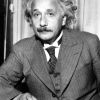 +26 +1
+26 +1Tangled Up in Entanglement
Researchers affirmed once again that quantum mechanics, as strange as it may seem, works in every way we can test it. By Lawrence M. Krauss.
-
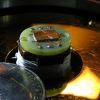 +22 +1
+22 +1Step forward for computing by light
Engineers and physicists have discovered a property of silicon which could aid the development of faster computers. By Yasmin Ali.
-
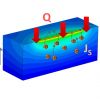 +17 +1
+17 +1Young scientist discovers magnetic material unnecessary to create spin current
It doesn't happen often that a young scientist makes a significant and unexpected discovery, but postdoctoral researcher Stephen Wu of the U.S. Department of Energy's Argonne National Laboratory just did exactly that. What he found—that you don't need a magnetic material to create spin current from insulators—has important implications for the field of spintronics and the development of high-speed, low-power electronics that use electron spin rather than charge... By Carla Reiter.
-
 +19 +1
+19 +1After 85-year search, massless particle with promise for next-generation electronics found
An international team led by Princeton University scientists has discovered Weyl fermions, an elusive massless particle theorized 85 years ago. The particle could give rise to faster and more efficient electronics because of its unusual ability to behave as matter and antimatter inside a crystal, according to new research.
-
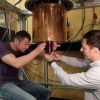 +11 +1
+11 +1Quantum computer storage may require the help of an intermediary to transmit information
Researchers at the Okinawa Institute of Science and Technology Graduate University have identified a system that could store quantum information for longer times, which is critical for the future of quantum computing.
Submit a link
Start a discussion




















